Imagination for a fairer world
Meet the savvy corporation closing the gap on educational achievement in Australia and around the world.
Sydney, New South Wales: Forget Facebook. For young Indigenous people in Australia and young marginalised people around the world, there’s a far better way to engage with peers and the world beyond school.
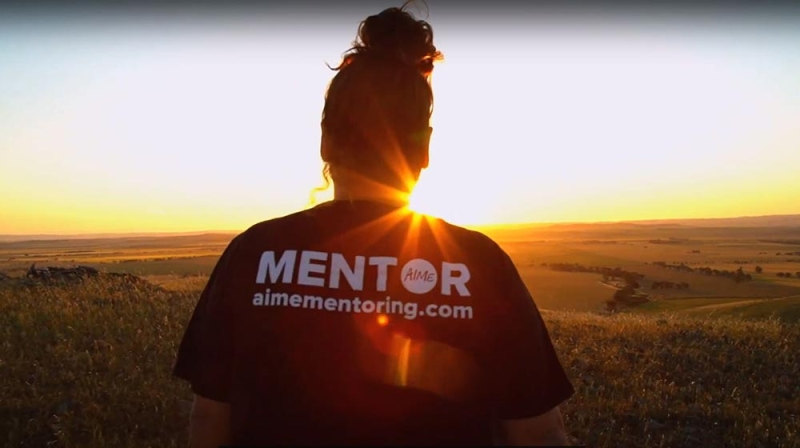
Australian Indigenous Mentoring Experience Indigenous Corporation (AIME) registered in 2008 with a clear ambition, to close the gap between Indigenous and non-Indigenous students in terms of school, vocational and tertiary education. Since its establishment, AIME’s objectives have reflected its aspiration to:
- increase rates of attendance and completion
- improve the quality of participation and skill development
- ensure equal access to study and training opportunities beyond school
- embed Aboriginal and Torres Strait Islander students and community members in decision-making about education services—from planning through to delivery and evaluation, and
- help others to achieve similar goals in relation to marginalised people around the world.
AIME’s primary method has been to develop a network of volunteer university student mentors (including many Aboriginal and Torres Strait Islander students). Having learned through their own experience to overcome adversity, each one is a valuable resource.
The mentors are deployed to engage in a structured program of activities with young people at secondary schools, to give them the skills, confidence and opportunities to achieve whatever they imagine. The ‘Imagination curriculum’ connects students aged 12 to 18 with mentors, forming a bridge from high school to positive post-school pathways including university, technical training or work). The program includes workshops, tutoring, exposure to role models and thought leaders, all in a group mentoring framework—and it works.
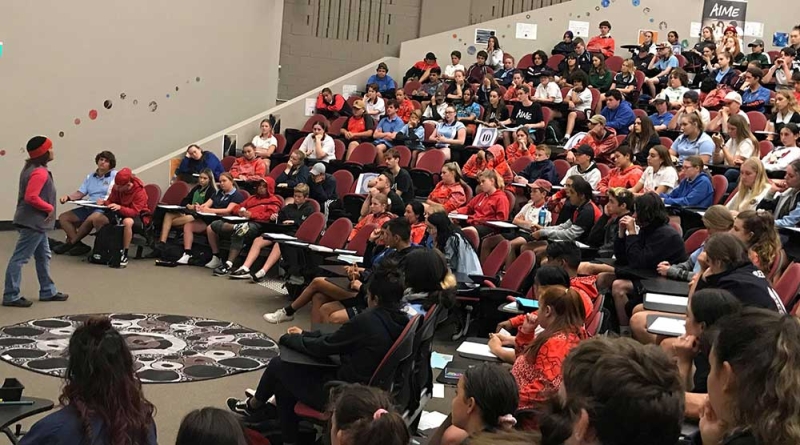
Students involved with AIME have been shown to fare better than Indigenous students who are not involved with AIME’s program. In fact their outcomes often exceed those of non-Indigenous students as well. A 2018 study by global accounting KPMG found that for every dollar invested, AIME produced in excess of 8 dollars of economic value.
With a deep understanding of mentoring as a strategy to alleviate disadvantage, from the outset the corporation sought out partners and mentors to build its own capacity to govern well and grow strong. Now, it’s reporting as a large corporation with an average annual income of around $10 million and 50 employees.
AIME has distilled its organisational model into a set of 18 core values, which it uses to shape its organisational strategy; engage its staff; train its new volunteer mentors; and inspire marginalised youth. Each value translates to an important governance principle—even ‘failure’, since there is so much to learn from it, and since fear of failure can prevent us from taking the risks required to succeed. Conversely, a concept banished from the AIME curriculum is shame, as the 2018 KPMG whitepaper says: ‘Shame is not compatible with learning; in order to learn students need to feel safe and able to take risks’.
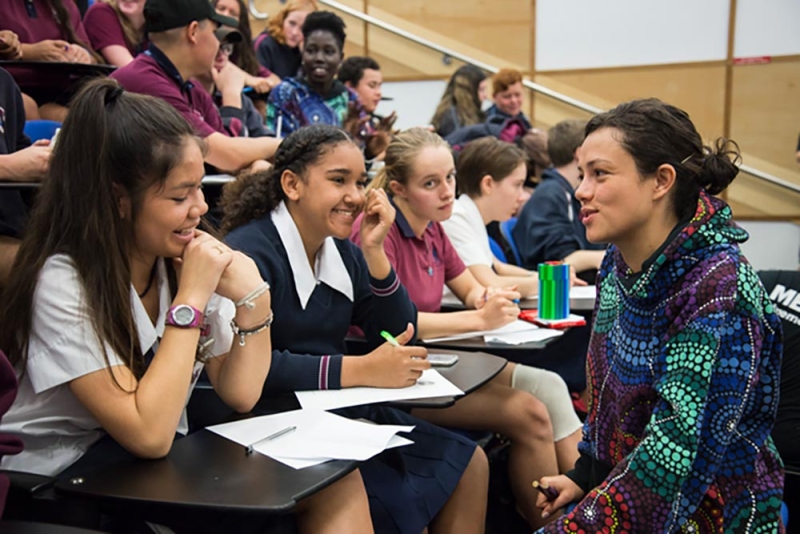
After the program’s success here in Australia, in 2019 the board directed the corporation to test how its curriculum and mentoring method could be applied to marginalised youth around the world. It was a bumpy ride, as founding director Jack Manning Bancroft explains in AIME’s history video 7 Down—but perhaps that was inevitable given the global scale and experimental nature of the mission:
In taking AIME global... we’ve started a new paradigm. There are few organisations on the planet where there’s an Aboriginal kid or young person or adult in a virtual world with a Ugandan youngster, with a South African youngster, with a refugee migrant who’s now in America, with someone from Europe—and everyone coming together using their collective wits to work out how to solve the challenge of educational inequity.
Covid hit AIME hard. When students were forced home, both the operating model and the programs had to adapt. Chair Tom Dery said:
It was a challenging time because everyone had worked really hard and was very passionate about the work. With the big picture in mind, we knew we needed to make some difficult decisions.
In response, AIME rationalised and centralised its workforce and shifted to an almost entirely volunteer-led mentoring model. It also established a new partnership with some of its corporate supporters to broadcast IMAGI-NATION {TV} live on YouTube every weekday at noon. If you could join live through your device you could interact with AIME and its wider ecosystem in real-time.
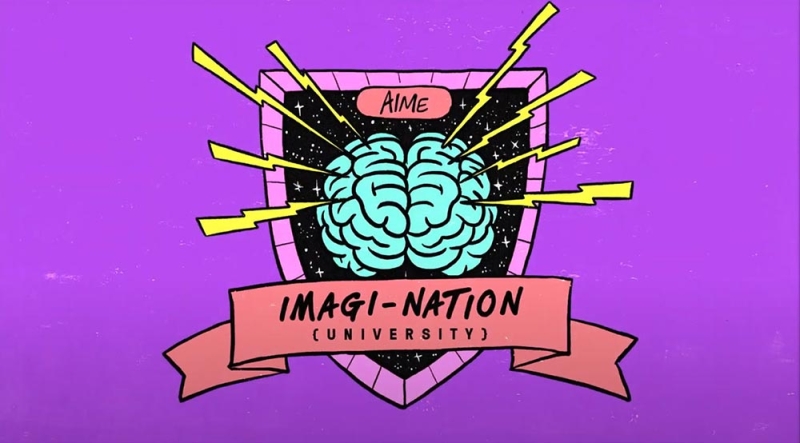
Since February 2021, AIME has also run an online learning and collaboration platform it calls IMAGI-NATION {University}, which in its first year attracted 417 participating students from 54 countries. The plan is to continue to leverage new technologies and communications media to augment AIME’s traditional in-person mentoring model to mentor 100,000 school students around the world each year, including 10,000 Indigenous students in Australia.
Through this combination of strong governance and rapid innovation, AIME was able to achieve better than expected financial outcomes as the impacts of the global pandemic began to moderate.
Having proved the efficacy of its approach, its capacity to pivot as needed, and its sound financial management, AIME has attracted some serious government funding. Most recently, in February 2022, the federal government announced AIME would receive another $13.5 million in support over 3 years, assisting in the expansion of its operations through to 2025 and significantly increasing the number of students it supports each year.
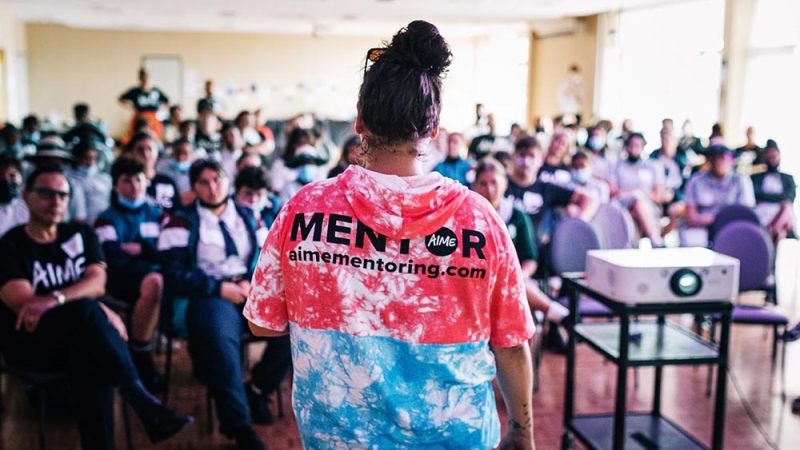
AIME is an impressive movement for self-determined success, underpinned by a corporation with grounded, smart governance. Here's Jack Bancroft again:
That period of breaking it and remaking it... has been a real trip. You don’t acquire knowledge until you’re at the end of the road, and that’s a scary part about doing anything. You take a leap, and you’re flying. And for that period of flying, you’re really trying to work it out, and do as much good along the way as you can.
As Einstein said, imagination is more important than knowledge—knowledge is limited; imagination encircles the world.
All photos courtesy of the corporation